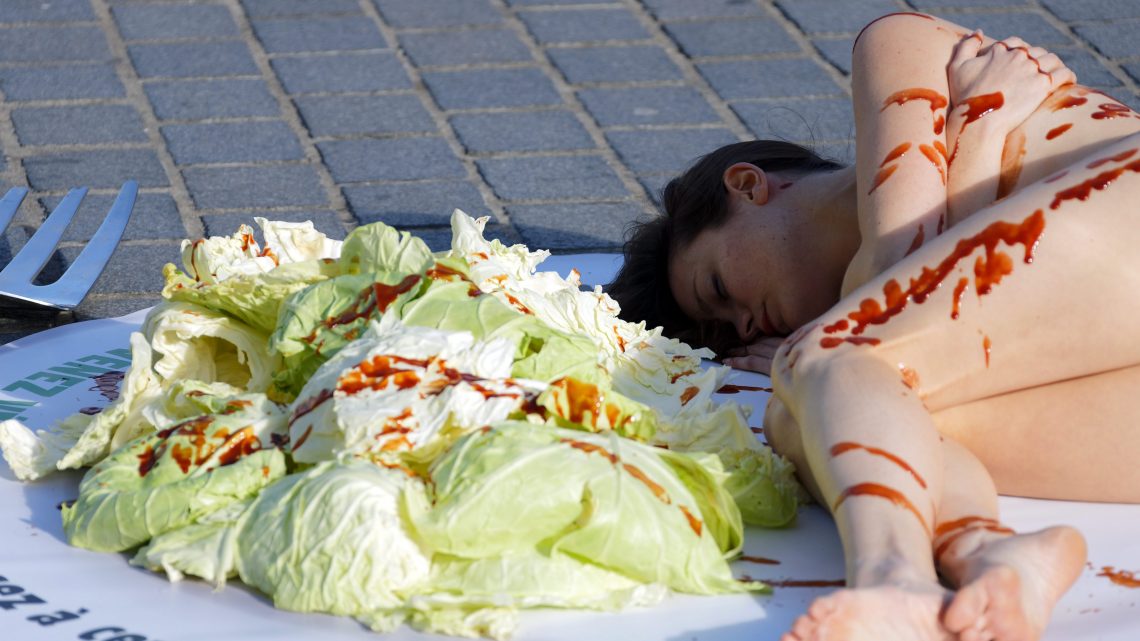
There’s a Term For Hating On Vegans And It’s Vegaphobia
November 22, 2018I’ve written before about why some people react negatively toward veganism.
The vegans I interviewed shared a wide variety of reasons they believed people felt resentful toward vegans, including a lack of diversity within the vegan community, perceived preachiness, comparisons to the Holocaust or slavery, as well as defensiveness about being a meat eater and not wanting to change.
Though hating on vegans is almost a cliche, there’s not much actual data about it. But a new survey from Lifesum, a weight loss app, of UK and US-based vegans found that eight out of 10 respondents had experienced “vegaphobia” which it defined as a prejudice against vegans.
The survey found that 92 percent of respondents experienced vegaphobia from family and friends, 59 percent experienced it while dining out, 55 percent in the workplace, and 21 percent while grocery shopping. So far more than 1,000 people have responded but the survey is still ongoing, according to Lifesum.
Respondents also gave specifics on incidents of vegaphobia they’ve experienced. One person said “people have purposely put meat in products to see if I will eat it/try and trick me,” according to a news release from Lifesum. Another respondent said when they share posts about veganism family members and friends “will write comments just filled with insults or bragging about what animals they killed during their last hunting trip, just taunting me and being rude.” Another respondent said they usually don’t even mention the word “vegan” to avoid dealing with rudeness and defensiveness.
Some respondents seemed nonplussed about dealing with haters.
One said, “Veganism has been the best decision I've ever made. Veganism rocks!!” Another blunt user simply said, “Being a vegan is dope and all the haters can suck my balls.”
Toronto vegan Darren Chang, 28, told VICE he believes prejudice against vegans is a “very real thing in part because it challenges the belief of human superiority over non-humans, which is such a deep-seated ideology across almost all cultures.”
He believes there is an overlap in the domination of animals—i.e. how hunting is presented as masculine—and other forms of oppression, including racism.
“All these things combined, it makes sense that vegaphobia would be a thing, because people fear what they feel threatens their sense of identity and associated values and beliefs.”
But not all vegans are supportive of terms like “vegaphobia.”
“I've heard the term but don't care for it,” Mathusha, 26, a vegan who lives in Markham, Ontario, told VICE.
“Do we get harped on for being vegan? Yeah, often. Carnivores can be assholes, but so can vegans. This doesn't make us an ‘oppressed’ people. To imply we are is peak privilege at best.”
Mathusha previously told VICE she found it difficult to be a woman of color and a vegan because she believes many vegan circles lack empathy for other cultures.
“White vegans and radical vegans are always downplaying actual oppression but you can count on them to cry about their hurt feelings which, essentially, is offensive in itself.”
Chang said vegans are diverse, and some and more privileged than others.
“Vegans as a whole are still very much minority populations in any society, and the marginalization of vegans could make them more vulnerable, but again, some vegans more vulnerable than others,” he said.
“Black vegans living in low-income communities with limited access to healthy food would be a lot more vulnerable to various types of violence and oppression vs. upper middle class white vegans who shop at Whole Foods.”
Follow Manisha Krishnan on Twitter.
Sign up for the VICE Canada Newsletter to get the best of VICE Canada delivered to your inbox.
This article originally appeared on VICE CA.


